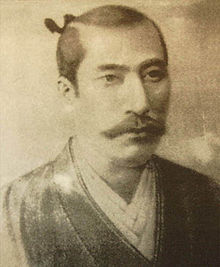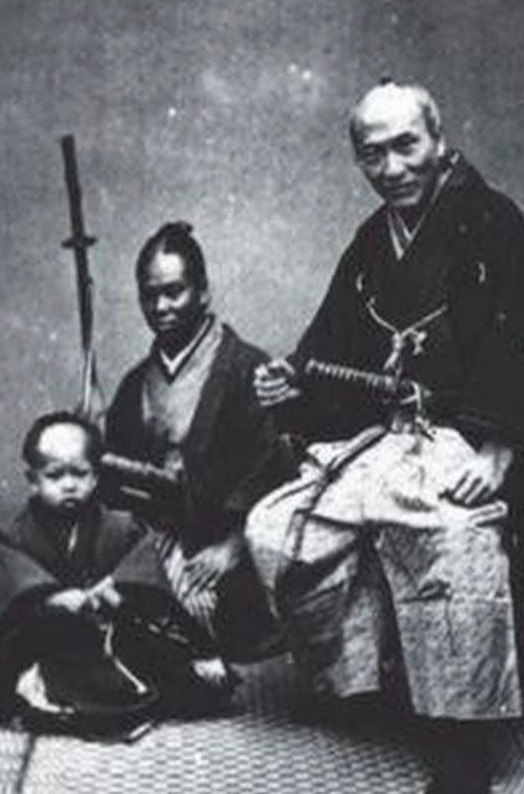The first African samurai to serve a Japanese warlord will soon have his life memorialized in the mainstream movie Yasuke. The film already has star power fueling its inception since Highlander creator Gregory Widen is on board to produce the script.
The main character of the film found his fortunes changed through war. Originally a soldier from Ethiopia, Yasuke eventually found his way to Japan through service to a Jesuit priest.
He proved himself such a valuable warrior, teacher and advisor that the warlord Oda Nobunaga took him into service. Nobunaga was one of the prime warlords in Japan at the time. History confers him the honor of unifying the country. At that time, black skin was revered around the world rather than reviled.

Source: Giovanni Nicolao
Buddha was often pictured with black skin in holy Japanese temples. One story relates that Nobunada made Yasuke rub his skin vigorously to prove that he was actually black and not just covered in ink.
There are talks that the rapper/actor Common would take on the role of Yasuke, although that would require some extra work in the makeup room. Although Common is "black" in the same way that Yasuke is "black," Common's light skin tone does not match the shade that Yasuke probably featured. However, Common does have the most recent mainstream martial arts credit - he is set to play lead in the TV adaptation of Black Samurai.
His Service in Unifying Japan
Yasuke garnered attention wherever he went in Japan, and not only for his skin tone. The warrior reportedly stood over six feet tall, an absolute giant in feudal Japan, where most men stood about five feet tall. The other well known giant samurai in Japanese history, Miyamoto Musashi, completely dominated his opponents physically because of this great advantage in height.

Source: i.imgur.com/UK0EnYn.jpg
Even with this great advantage in battle, Yasuke only served Nobunaga in 1581 and 1582. During this time, he enjoyed privileges far above the normal servant or vassal. He sat in privileged positions and was even allowed to dine at table with Nobunada himself several times. He was paid for his labors as a warrior, something that most servants only dreamed of. He served as personal bodyguard to Nobunaga, as well, and was allowed the privilege to carry the Daimyo's katana.
Nobunaga was eventually betrayed by one of his top generals, Akechi Mitsuhide.
Yasuke, with the forces of Nobunaga's son, Oda Nobutada, fought bravely against Mitsuhide's forces. Mitsuhide eventually prevailed. Mitsuhide did not give Yasuke the privilege of a warrior death. Instead, after accepting Yasuke's surrender, Mitsuhide sent him away to Kyoto to waste away in a Jesuit church. Here, history becomes murky. Yasuke may have been ambushed and killed here, or he may have lived out the rest of his days in relative obscurity.
Was Yasuke the Only Black Samurai?
The circumstances through which Yasuke came to Nobunada were certainly unique. Should this set of travels have been required for every would-be African samurai, then it is certainly plausible that Yasuke was the only one to make that particular journey. The mixing and matching of Asian and African cultures, however, would continue long into the future.
The name of Yasuke lives on in pop culture as well. Aside from the upcoming movie, some reports tell that Samuel Jackson's cult favorite TV show Afro Samurai was based on the adventures of Yasuke as a ronin after his service to Nobunaga.
The world also enjoyed the overlap of Asian samurai culture and African-American culture through the popularity of The Wu Tang Clan, one of hip hop's most enduring stage acts.

Source 7 Seas Entertainment
Sakanouye No Tamuramoro may have been Yasuke in a ‘previous life,’ as another black man who also became a samurai. He was a samurai of the Heian Period, served Emperor Kammu as a palace guard and was made commander of the guard in a war against the Ainu. He is recorded in history as having a "black complexion." In fact, there is much historical evidence proving that black people were populating this area for millennia, though this evidence has not often been mentioned.
Much of the history has been lost, but one thing is certain. The manner in which ancient Japan corresponded with the African diaspora was definitely more complex than previously thought. The archeological and anthropological evidence points to black people as original early inhabitants of Japan. “For a Samurai to be brave, he must have a bit of Black blood.”
This Japanese proverb makes clear the ancient link that is well known in certain circles, and indeed, has been reported in Associated Press releases, and others, that Black people were present in ancient Japan. Perhaps Lionsgate films and its multimillion dollar budget will be able to unearth some hidden truths and start educating the world at large about the links between Africa and Asia through the intriguing tale of the honorable samurai Yasuke.
